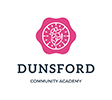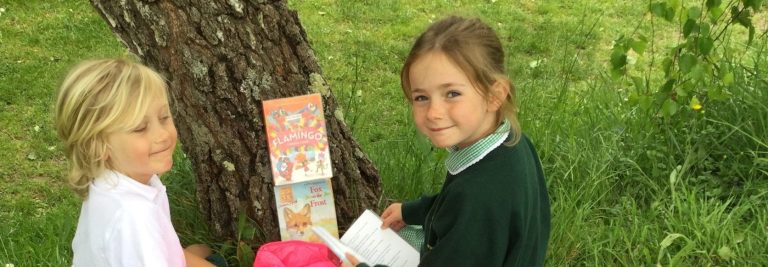

At Dunsford Community Academy, we have carefully designed our curriculum sequencing to match our mixed aged classes, which are revised each academic year. This year we have a mixed Nursery/Reception, Year 1/2, Year 3/4, and Year 5/6 class.
We have a core offer for English and Maths which is supported by our Trust in professional development, delivery and high expectations. We use Read Write Inc for synthetic phonics and use Numbersense to support early Maths.
Much our curriculum subject offer is taught on a 2 year rolling programme, based on our fluctuating numbers at the top of the school. We are careful to ensure coverage and mastery in areas of the curriculum, so that children experience a full range, without repetition.
Science has been developed to ensure that there is a 2-year rolling programme and children will not repeat units. We have sought to maximise opportunities to build on prior learning and build on key knowledge, concepts and skills. The children have been placed in KS1, LKS2 and UKS2 to allow them to access the key objectives in Science that are aimed at their age and stage. Units have then been deliberately placed so that similar units are taking place in the same term, and same year to support progression and deepen teachers’ knowledge of the differences between year groups. The skills within the curriculum overview map will only focus on the age range of the child to allow them to achieve before moving into the next stage. By the end of each key stage grouping, over the 2 years, all children will have covered all the expected objectives building on prior learning in readiness to build and further develop in the next stage of their education.
The children have also been placed in KS1, LKS2 and UKS2 for RHE to allow them to access the objectives that are aimed at their age and stage.
Geography and History are alternated half-termly and are both taught discretely, as stand-alone subjects, this maximises the opportunities to make links to prior learning, layer up knowledge and enable meaningful links with other subjects.
The Geography and, in part, the History concepts have been carefully chosen with the community, which the school serves, at the heart of our distinctive offer therefore including local, national and global opportunities, whilst creating support for studies in the future. eg A European study of Italy supports a following study of the Roman empire.
This is important in all subjects so that our pupils, first and foremost, have a strong sense of belonging (one of our core beliefs) and of themselves within their community but also then build upon this to have a deep understanding of their place within the wider world. We are aware that Dunsford’s community is rural and lacks the diversity that can be experienced in many other schools, therefore our curriculum is underpinned by the premise that we must educate them to have agency within the wider world around them.
The academy has a legacy of strong musicians and music is very important to us. We have peripatetic teachers delivering private lessons alongside out music curriculum, which includes children learning an instrument.
Art, Design and Design and Technology are also a core diet of Dunsford pupils. We recognise the need for creativity in all walks of life. Our curriculum builds on the disciplinary knowledge of being creative, alongside the knowledge of a range of artists and practical work
Our computing curriculum is purpose built to take advantage of the other subject curriculum areas. There is a high focus on staying safe online alongside opportunities to bring computing to life through robotics, data science, publishing, visual and audio presentations and a knowledge of networks.
Swimming Pool. We have our own swimming pool here at Dunsford and use every opportunity to ensure pupils learn to swim. We use our budget to buy in swimming teachers to develop early swimming as soon as it is safe. We are very lucky to have our partner Saints Southwest Sports deliver part of our PE curriculum with pupils enjoying a wide range of opportunity including, dance, gymnastics, invasion games, throwing and catching and net games, as well as the theory of living healthy lives.
Our Religious Education curriculum is supported by our Trust, flowing local Devon and Plymouth, to ensure a wide range of religious and cultural knowledge. Our Trust Charter continues to offer further religious and cultural experiences.
There are no set number of lessons per week, therefore, teachers are encouraged to use flexibility in their weekly timetables to ensure the unit is complete.

Long Term Planning Overview
Classes Curriculum Booklets:
Barn Owls (Y5/6)
Magpies Class (Y3/4)
Kingfisher Class (Y2/3)
Robins Class (Nursery/Reception)